New Directions in Classics 2017-18
Classics is the ‘original’ interdisciplinary department. While it is specific in its study of one time period (antiquity) and one place (the Mediterranean) it is general in its myriad of approaches to that place and time.
The close study of ancient Greek and Latin remain central to the discipline, but Classics today is an energetic and changing field that engages, especially with the modern use and misuse of antiquity. Socially conscious and social justice research and teaching are new and exciting developments, and Classicists are more and more attuned to the discipline’s complex relationship with an array of imperial, patriarchal, and elitist regimes.
This is why we have introduced New Directions in Classics, an interesting and engaging lecture series which covers an array of topics that showcase the Classics as relevant and fundamental to the study of arts, culture, and language in our contemporary world.
Please contact series organizers, Dr. Peter J. Miller and Ruth Dickinson, for more information and view the series posters and details for the inaugural year below.
Summary of 2017-18 Lectures [PDF]
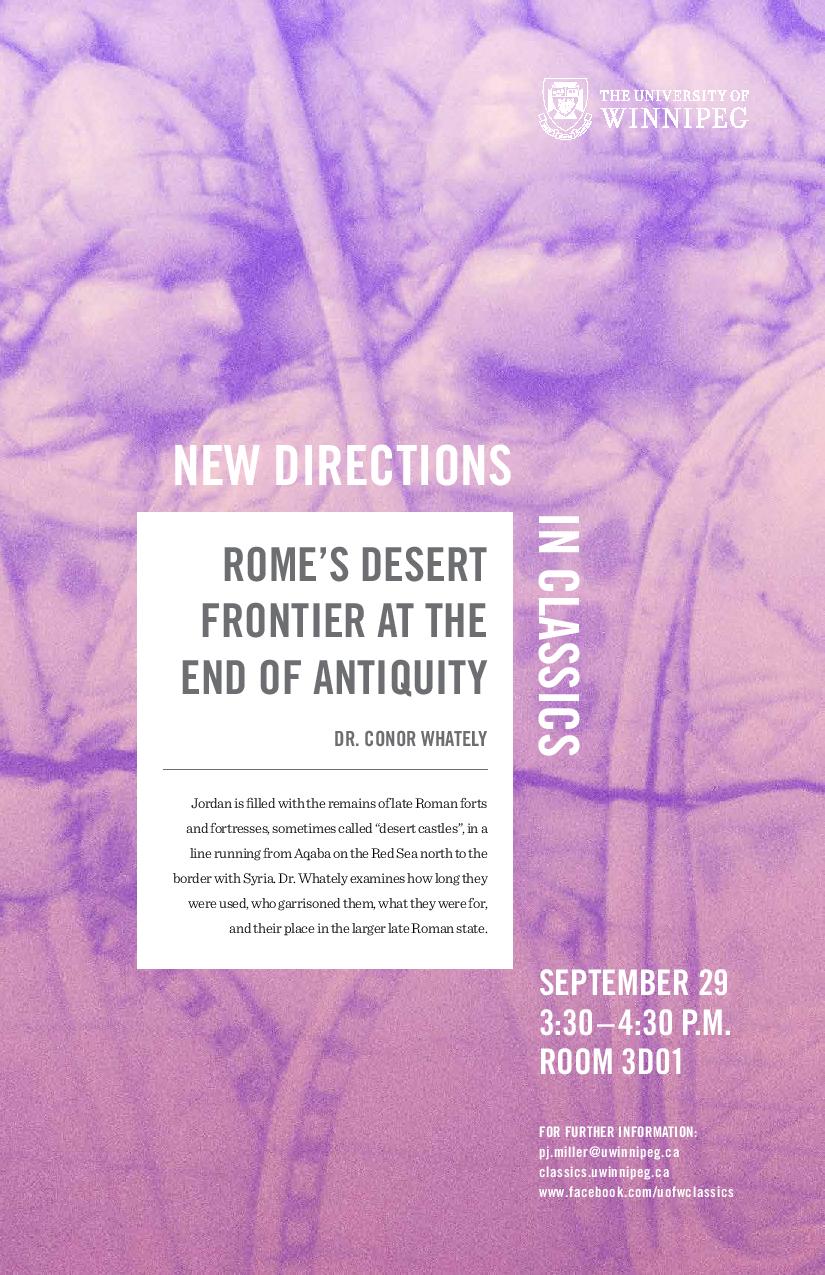
Rome's Desert Frontier at the End of Antiquity
Dr. Conor Whately
September 29, 2017 | 3:30-4:30PM | Room 3D01
Jordan is filled with the remains of late Roman forts and fortresses, sometimes called “desert castles”, in a line running from Aqaba on the Red Sea north to the border with Syria. Dr. Whately examines how long they were used, who garrisoned them, what they were for, and their place in the larger late Roman state.
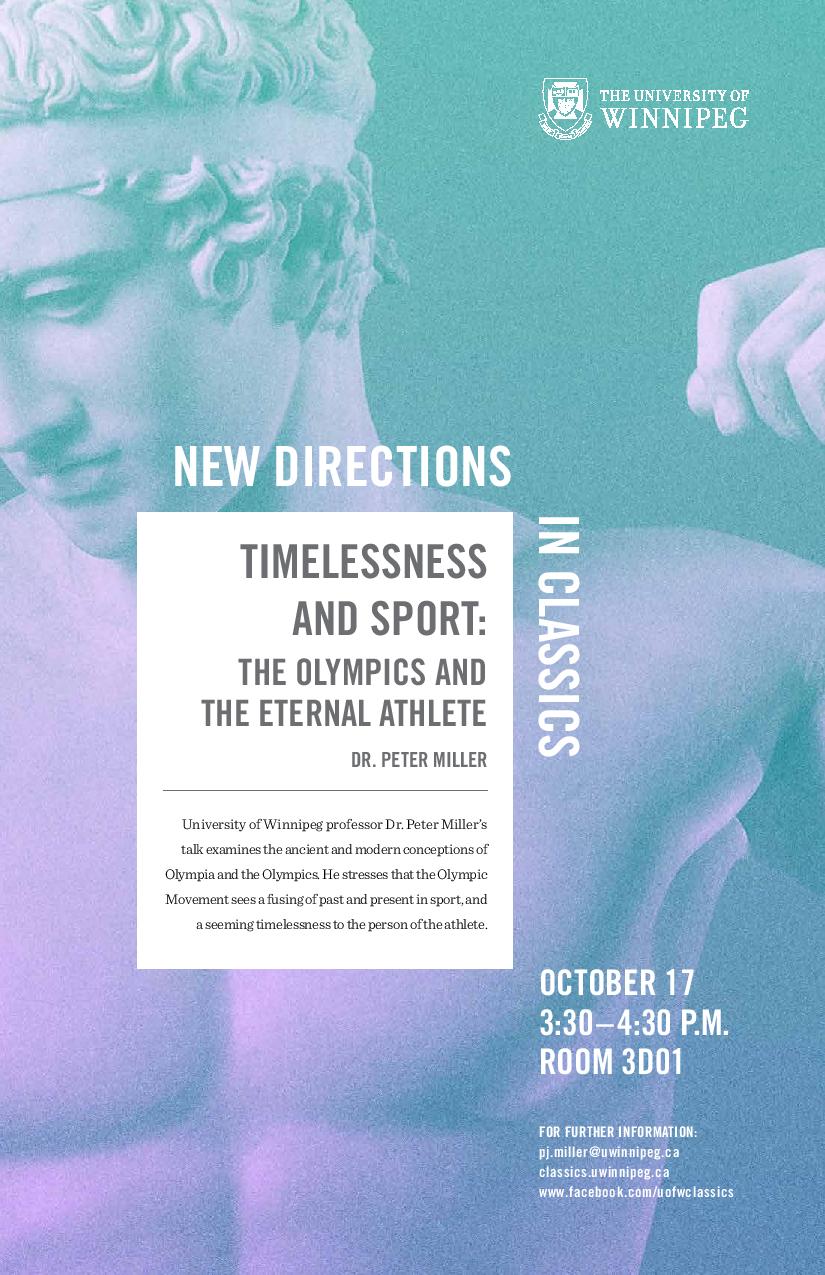
Timelessness and Sport: The Olympics and The Eternal Athlete
Dr. Peter J. Miller
October 17, 2017 | 3:30-4:30PM | Room 3D01
University of Winnipeg professor Dr. Peter Miller’s talk examines the ancient and modern conceptions of Olympia and the Olympics. He stresses that the Olympic Movement sees a fusing of past and present in sport, and a seeming timelessness to the person of the athlete.
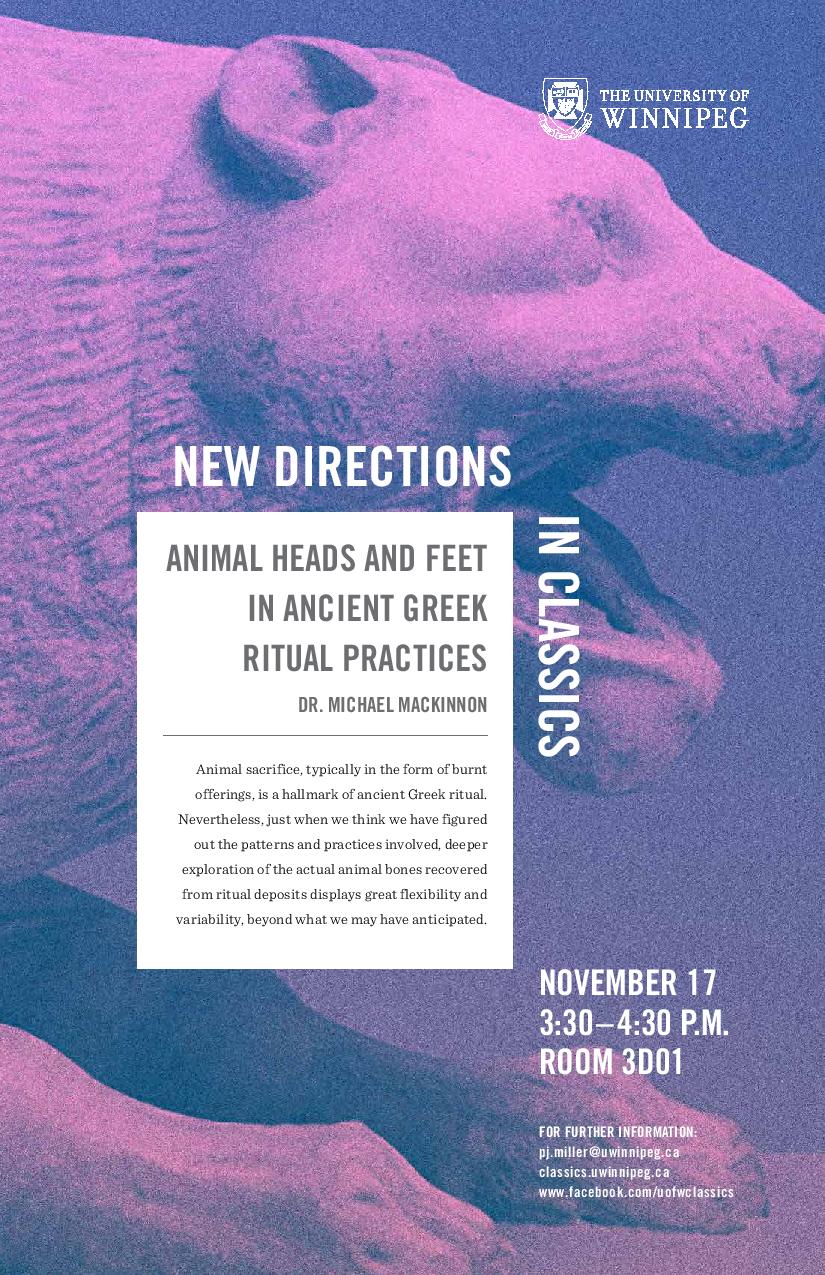 Animal Heads and Feet in Ancent Greek Ritual Practices
Animal Heads and Feet in Ancent Greek Ritual Practices
Dr. Michael MacKinnon
November 17, 2017 | 3:30-4:30PM | Room 3D01
Animal sacrifice, typically in the form of burnt offerings, is a hallmark of ancient Greek ritual. Nevertheless, just when we think we have figured out the patterns and practices involved, deeper exploration of the actual animal bones recovered from ritual deposits displays great flexibility and variability, beyond what we may have anticipated.
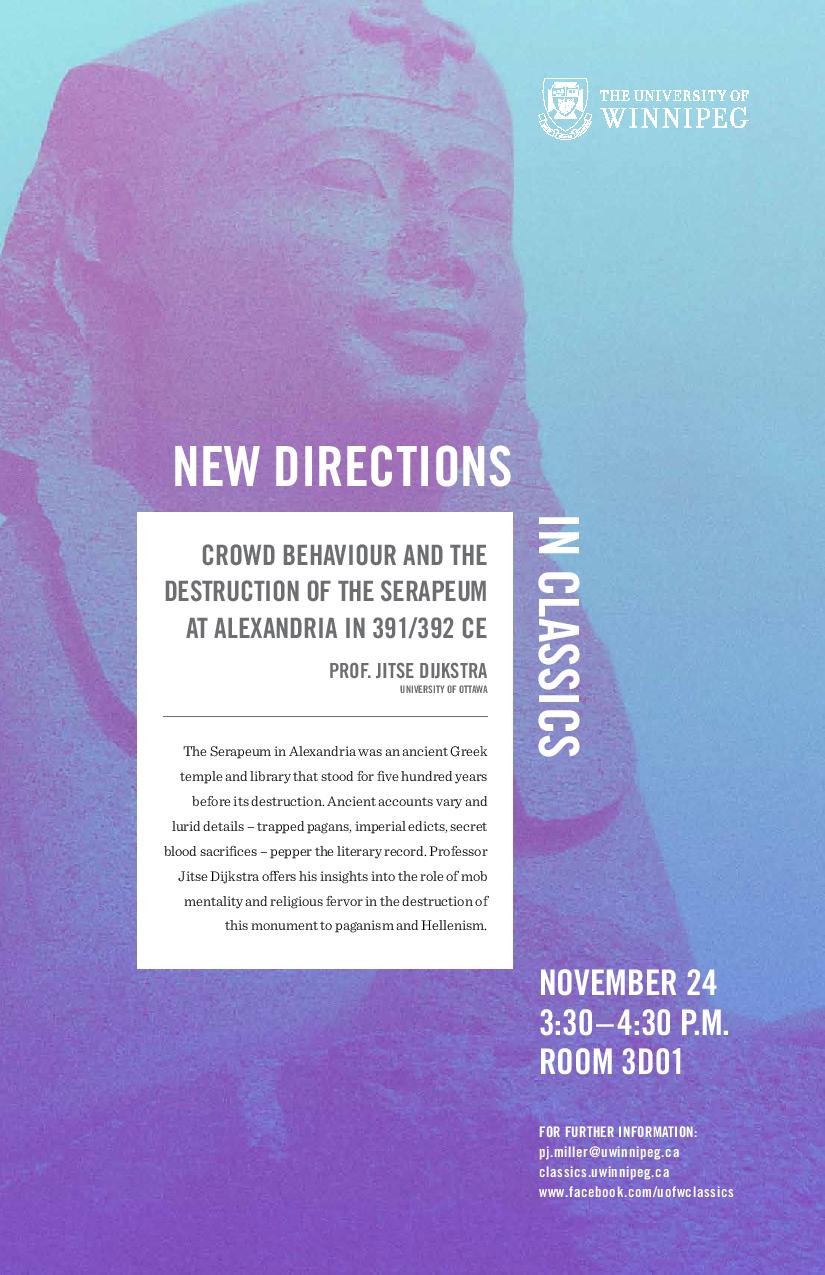
Crowd Behaviour and the Destruction of the Serapeum at Alexandria in 391/392 CE
Professor Jitse Dijkstra, University of Ottawa
November 24, 2017 | 3:30-4:30PM | Room 3D01
The Serapeum in Alexandria was an ancient Greek temple and library that stood for five hundred years before its destruction. Ancient accounts vary and lurid details – trapped pagans, imperial edicts, secret blood sacrifices – pepper the literary record. Professor Jitse Dijkstra offers his insights into the role of mob mentality and religious fervor in the destruction of this monument to paganism and Hellenism.
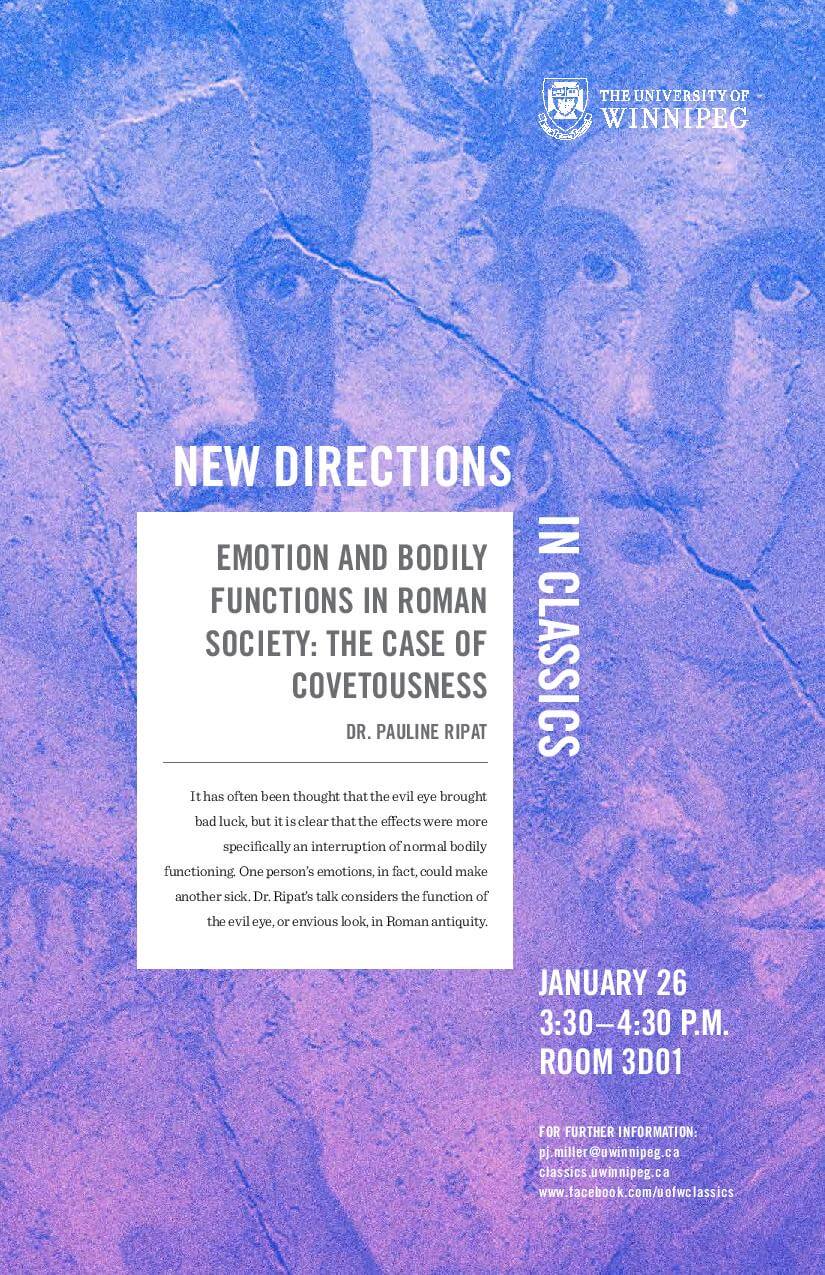
Emotion and Bodily Functions in Roman Society: The Case of Covetousness
Dr. Pauline Ripat
January 26, 2018 | 3:30-4:30PM | Room 3D01
It has often been thought that the evil eye brought bad luck, but it is clear that the effects were more specifically an interruption of normal bodily functioning. One person’s emotions, in fact, could make another sick. Dr. Ripat’s talk considers the function of the evil eye, or envious look, in Roman antiquity.
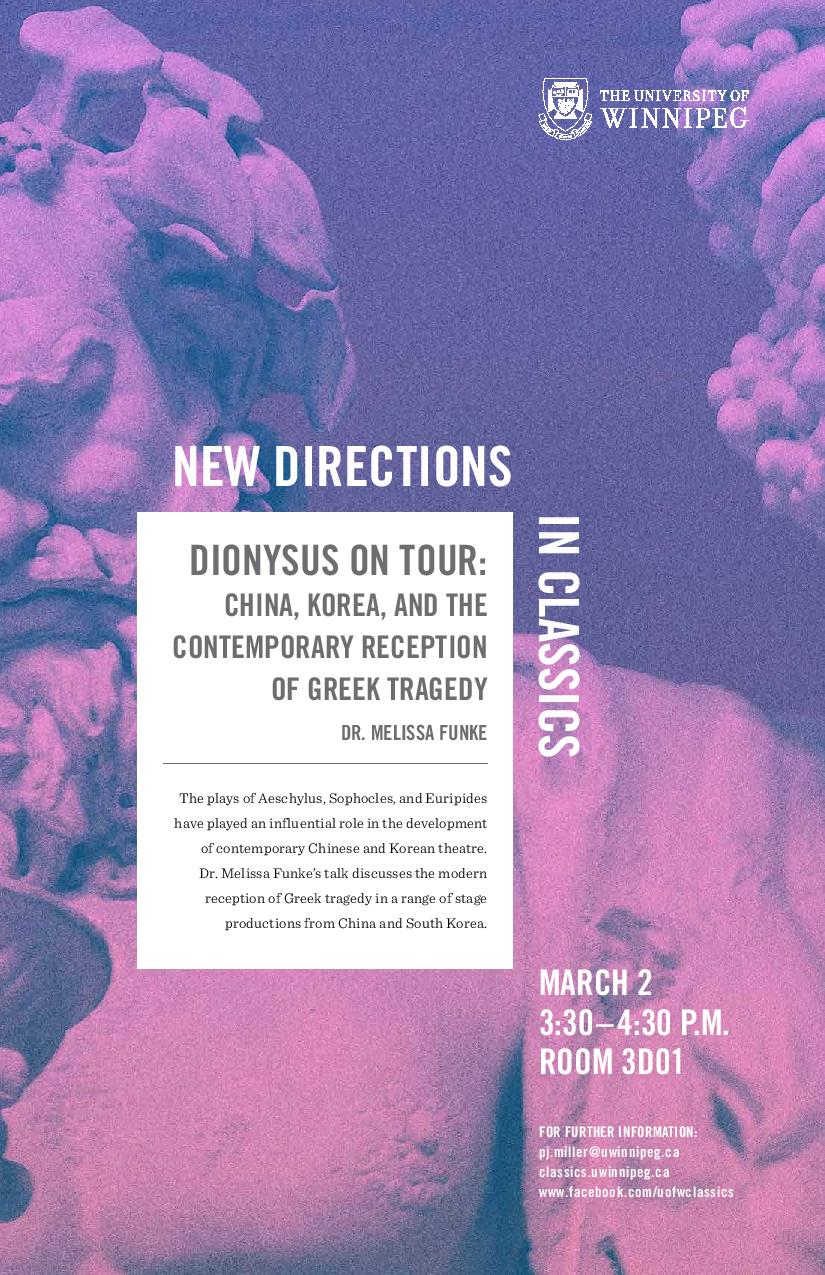
Dionysus on Tour: China, Korea, and the contemporary Reception of Greek Tragedy
Dr. Melissa Funke
March 2, 2018 | 3:30-4:30PM | Room 3D01
The plays of Aeschylus, Sophocles, and Euripides have played an influential role in the development of contemporary Chinese and Korean theatre. Dr. Melissa Funke’s talk discusses the modern reception of Greek tragedy in a range of stage productions from China and South Korea.
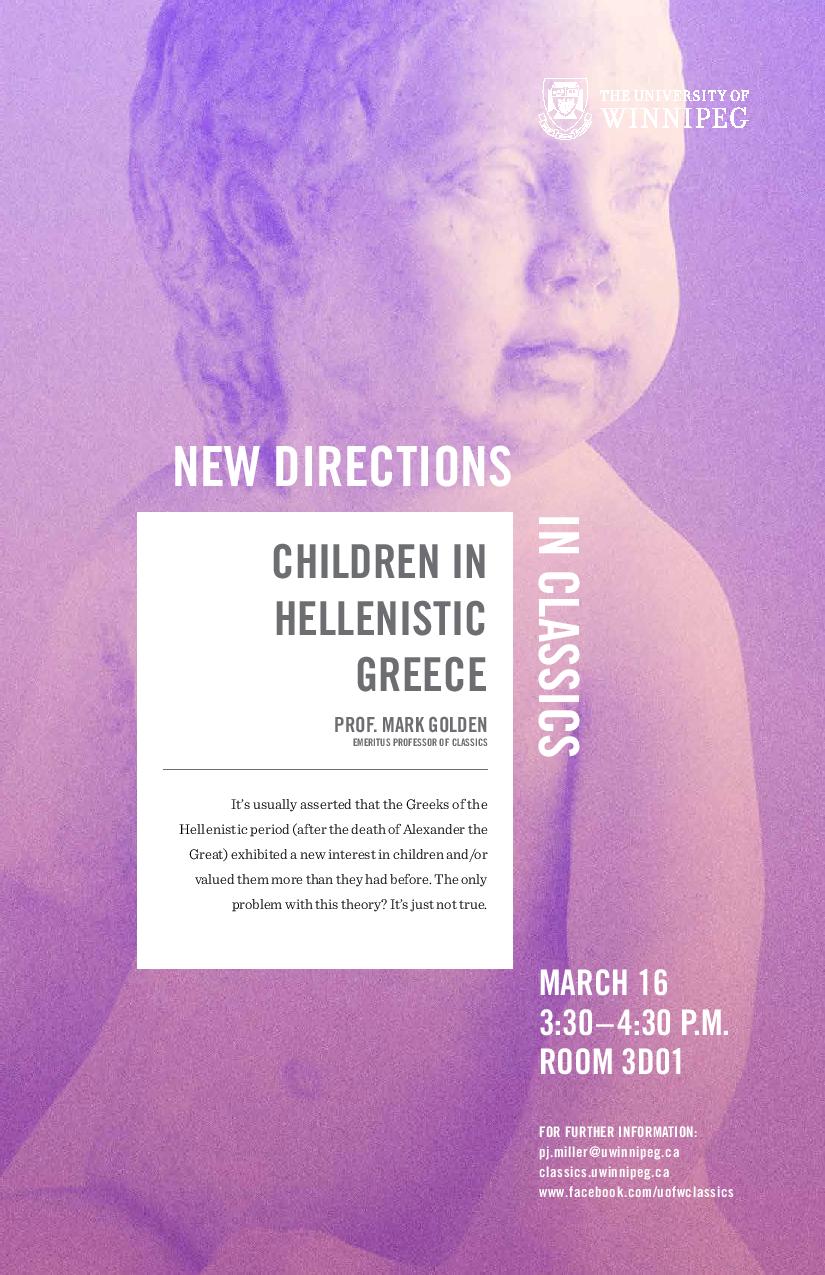
Children in Hellenistic Greece
Professor Mark Golden, Professor Emeritus of Classics
March 16, 2018 | 3:30-4:30PM | Room 3D01
It’s usually asserted that the Greeks of the Hellenistic period (after the death of Alexander the Great) exhibited a new interest in children and/or valued them more than they had before. The only
problem with this theory? It’s just not true.
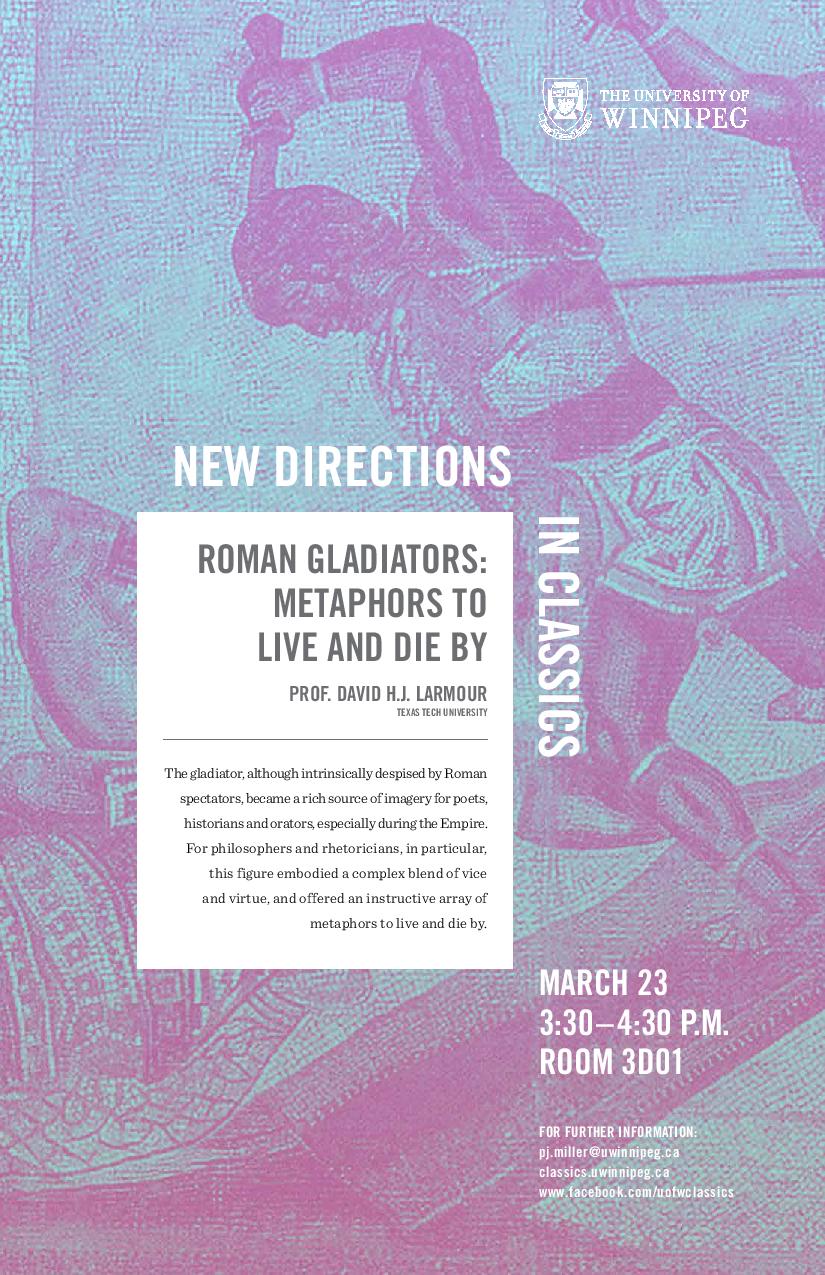
Roman Gladiators: Metaphors to Live and Die By
Professor David H.J. Larmour, Texas Tech University
March 23, 2018 | 3:30-4:30PM | Room 3D01
The gladiator, although intrinsically despised by Roman spectators, became a rich source of imagery for poets, historians and orators, especially during the Empire. For philosophers and rhetoricians, in particular, this figure embodied a complex blend of vice and virtue, and offered an instructive array of metaphors to live and die by.
